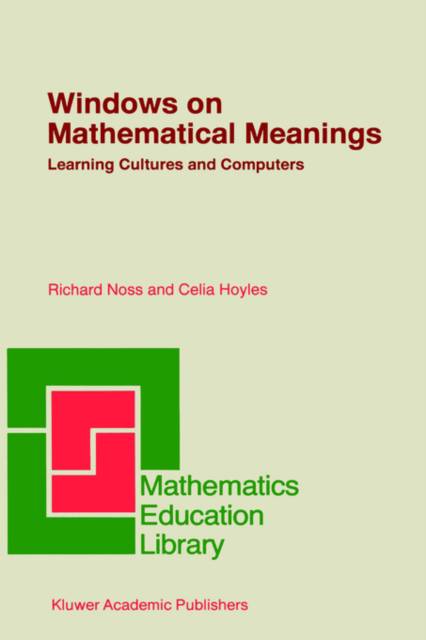
- Afhalen na 1 uur in een winkel met voorraad
- Gratis thuislevering in België vanaf € 30
- Ruim aanbod met 7 miljoen producten
- Afhalen na 1 uur in een winkel met voorraad
- Gratis thuislevering in België vanaf € 30
- Ruim aanbod met 7 miljoen producten
Zoeken
€ 259,45
+ 518 punten
Uitvoering
Omschrijving
This book is the culmination of some ten years' theoretical and empirical investigation. Throughout this period, we have come into contact with many who have stimulated our thinking, some of whom belong to the community of Mathematics Educators. Our membership of that community has challenged us to make sense of some deep issues related to mathematical learning, especially the cognitive and pedagogical faces of mathematical meaning- making. Alongside this community, we are privileged to have been part of another, whose members are centrally concerned both with mathematics and educa- tion. Yet many of them might reject the label of Mathematics Educators. This community has historically been clustered around what is now called the Epistemology and Learning Group at the Massachusetts Institute of Technol- ogy. Their work has focused our attention on cognitive science, ethnography, sociology, artificial intelligence and other related disciplines. Crucially, it has forced our awareness of the construction of computational settings as a crucial component of the struggle to understand how mathematical learning happens. We have sometimes felt that few have tried to span both communities. Indeed, an analysis of the references in the literature would, we are sure, reveal that the two communities have often ignored each other's strengths. One reason for writing this book is born of our hope that we might draw together Mathematics Educators and mathematics educators, and assist both communities in recognising that there are insights that might be derived from each other.
Specificaties
Betrokkenen
- Auteur(s):
- Uitgeverij:
Inhoud
- Aantal bladzijden:
- 278
- Taal:
- Engels
- Reeks:
- Reeksnummer:
- nr. 17
Eigenschappen
- Productcode (EAN):
- 9780792340737
- Verschijningsdatum:
- 30/06/1996
- Uitvoering:
- Hardcover
- Formaat:
- Genaaid
- Afmetingen:
- 156 mm x 234 mm
- Gewicht:
- 589 g

Alleen bij Standaard Boekhandel
+ 518 punten op je klantenkaart van Standaard Boekhandel
Beoordelingen
We publiceren alleen reviews die voldoen aan de voorwaarden voor reviews. Bekijk onze voorwaarden voor reviews.











